Weight Loss and Incontinence: How Dropping Your Pounds Can Improve the Symptoms
Struggling with incontinence can be a frustrating experience. It often feels like it holds you back from enjoying life to the fullest. But what if shedding some extra pounds could lead to real improvements? Recent studies suggest that weight loss might play a significant role in easing those pesky symptoms. We’re talking about less frequent bathroom trips, fewer leaks, and better overall bladder control.
Moreover, 40% of obese individuals report experiencing urinary incontinence, compared to 20% of people at a healthy weight. It’s a significant difference that shows the potential impact weight has on this condition. Vital.de explained that 70% of people who lost weight experienced an improvement in their urinary incontinence symptoms. But how exactly does losing weight help with incontinence? Let’s explore the reasons behind this phenomenon.
Reduces Pressure on the Bladder
Carrying excess weight also means putting significant strain on your bladder. The pressure from abdominal fat often leads to increased urgency and frequency of urination, making daily life more challenging. When you shed those extra pounds, you’re not just improving your overall health; you’re also alleviating that constant pressure. This can lead to noticeable relief from incontinence symptoms. As the body becomes lighter, the pelvic organs are better supported. This change promotes healthier bladder function and reduces the chances of leaks during everyday activities.
Decreases Abdominal Fat
Excess abdominal fat triggers various health issues, including incontinence. The pressure from that extra weight pushes down on the bladder, making it harder to control urges. As you work toward losing those pounds, you may notice a significant difference. Targeted exercises and a balanced diet help reduce belly fat effectively. Activities like walking or cycling not only burn calories but also strengthen core muscles. This combination creates a supportive environment for your pelvic region. With less abdominal fat weighing you down, the strain on your bladder decreases. You might find yourself feeling more confident as everyday activities become easier and less stressful.

Improves Pelvic Floor Strength
Moreover, when excess weight is shed, the pressure on this crucial muscle group decreases. With less strain, these muscles can function more effectively. A stronger pelvic floor supports bladder control and can alleviate incontinence symptoms. This newfound strength often leads to greater confidence in daily activities.
In fact, shedding pounds encourages individuals to engage in exercises specifically designed for pelvic health, such as Kegel workouts or yoga. These activities strengthen the core while promoting flexibility. As a bonus, better pelvic support enhances sexual health and intimacy, too. A strong foundation offers benefits beyond just physical health; it greatly impacts emotional well-being as well.
Enhances Mobility and Exercise
Shedding extra pounds lifts the burden so you can be more flexible and feel freedom once again. With improved mobility comes the opportunity to engage in regular exercise. This not only aids weight management but also promotes overall health. Finding joy in physical activities becomes easier when the body feels lighter and more agile. Increased activity levels often lead to better endurance and strength, making workouts more enjoyable. As you move with less strain, it opens doors to try new exercises or even join group classes. And, of course, the boost in confidence from being active translates into a positive cycle of motivation.
Weight loss can have transformative effects on various aspects of health, including incontinence. …
Read More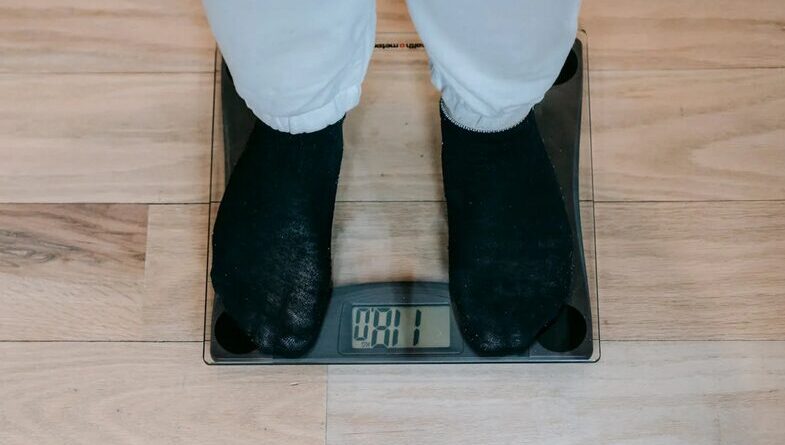




 Let’s start simple. Archery is an activity that requires full body engagement to ensure accuracy. It engages your core and helps you maintain proper posture when aiming for the target. When focusing on the target, archers must stand tall and be mindful of their posture. This helps improve overall balance and stability in the body. In fact, many archers find that their posture naturally improves throughout their practice as they focus on maintaining it.
Let’s start simple. Archery is an activity that requires full body engagement to ensure accuracy. It engages your core and helps you maintain proper posture when aiming for the target. When focusing on the target, archers must stand tall and be mindful of their posture. This helps improve overall balance and stability in the body. In fact, many archers find that their posture naturally improves throughout their practice as they focus on maintaining it. Not only can swimming be a fun activity, but it can also be beneficial for improving posture. Swimming encourages you to maintain proper alignment as you move through the water, and this helps build core strength and stability over time. As with horseback riding, swimming is low-impact which means that your joints won’t be taking any strain — allowing you to focus on postural alignment instead.
Not only can swimming be a fun activity, but it can also be beneficial for improving posture. Swimming encourages you to maintain proper alignment as you move through the water, and this helps build core strength and stability over time. As with horseback riding, swimming is low-impact which means that your joints won’t be taking any strain — allowing you to focus on postural alignment instead.

 What better way to ease your mind than by knowing that all of your medical appointments are under control? A healthcare scheduler can give you the peace of mind you need by keeping track of everything for you. This way, you can focus on enjoying your retirement years instead of worrying about doctor appointments. A healthcare scheduler is a valuable tool for seniors. It can help them stay organized, save money, stay healthy, and stay alert.
What better way to ease your mind than by knowing that all of your medical appointments are under control? A healthcare scheduler can give you the peace of mind you need by keeping track of everything for you. This way, you can focus on enjoying your retirement years instead of worrying about doctor appointments. A healthcare scheduler is a valuable tool for seniors. It can help them stay organized, save money, stay healthy, and stay alert.
 The first way to get the most out of modern healthcare technology is to be fully aware of every technology used in medical care. It means knowing about technologies like AI, robotic surgery, and telemedicine.
The first way to get the most out of modern healthcare technology is to be fully aware of every technology used in medical care. It means knowing about technologies like AI, robotic surgery, and telemedicine. Another way to get the most out of modern healthcare technology is to utilize secure messaging systems to communicate with patients. Secure messaging systems allow doctors and patients to share without worrying about intercepting their information. This type of system is convenient for both parties and can help improve the quality of care. Utilizing secure messaging tech is an excellent way for doctors to get the most out of modern healthcare technology.
Another way to get the most out of modern healthcare technology is to utilize secure messaging systems to communicate with patients. Secure messaging systems allow doctors and patients to share without worrying about intercepting their information. This type of system is convenient for both parties and can help improve the quality of care. Utilizing secure messaging tech is an excellent way for doctors to get the most out of modern healthcare technology.



 Before taking any diet pills, it’s always a good idea to talk to a doctor. A doctor can advise you on which pills are right for you, help you evaluate your current diet plan, and advise you on exercise and training regimens. Although it’s a little uncomfortable for everyone to talk to a doctor about their weight, try not to worry and remember that your doctor is there to support and advise you.
Before taking any diet pills, it’s always a good idea to talk to a doctor. A doctor can advise you on which pills are right for you, help you evaluate your current diet plan, and advise you on exercise and training regimens. Although it’s a little uncomfortable for everyone to talk to a doctor about their weight, try not to worry and remember that your doctor is there to support and advise you.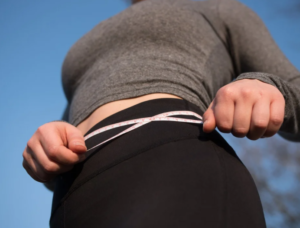 Carbohydrate blockers are known to create chemical changes in the body. These changes prevent your system from absorbing carbohydrates from your daily diet. This helps prevent your body from converting these carbohydrates into fat. The active ingredient in these supplements is usually a compound known as Phaseolus vulgaris. Phaselous Vulgaris comes from the white bean, and again, there are no long-term studies to support the claim that it is an effective therapy for weight loss.
Carbohydrate blockers are known to create chemical changes in the body. These changes prevent your system from absorbing carbohydrates from your daily diet. This helps prevent your body from converting these carbohydrates into fat. The active ingredient in these supplements is usually a compound known as Phaseolus vulgaris. Phaselous Vulgaris comes from the white bean, and again, there are no long-term studies to support the claim that it is an effective therapy for weight loss.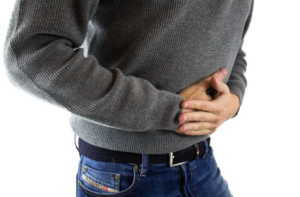 Celiac disease beats the intestines of the person who has this disease. In these conditions, I mean when you consume sweet foods, the nutrients are absorbed from the food that you consume.
Celiac disease beats the intestines of the person who has this disease. In these conditions, I mean when you consume sweet foods, the nutrients are absorbed from the food that you consume. The consequences of celiac depression are catastrophic. Many people with celiac disease are unaware of the serious consequences of gluten intake. They try to significantly avoid products with gluten, but often have problems with cross-contamination. Sometimes there is a surprising change in labels and people are used to carrying articles about the reasons for their previous understanding. Therefore it’s important to notice the consequences of this disease and take early action to prevent this disease go even worse.
The consequences of celiac depression are catastrophic. Many people with celiac disease are unaware of the serious consequences of gluten intake. They try to significantly avoid products with gluten, but often have problems with cross-contamination. Sometimes there is a surprising change in labels and people are used to carrying articles about the reasons for their previous understanding. Therefore it’s important to notice the consequences of this disease and take early action to prevent this disease go even worse.


 No matter how comfortable you have the surgeon, it is always safer to have the procedure performed by a doctor who specializes in a particular area. For example, if you want breast surgery, you should have it accomplished by a doctor specializing in breast implants. This tip will reduce any mishaps that may occur during and after the procedure. Sometimes, you may not be sure if you should have a specific cosmetic surgery done or not.
No matter how comfortable you have the surgeon, it is always safer to have the procedure performed by a doctor who specializes in a particular area. For example, if you want breast surgery, you should have it accomplished by a doctor specializing in breast implants. This tip will reduce any mishaps that may occur during and after the procedure. Sometimes, you may not be sure if you should have a specific cosmetic surgery done or not.
 It is nerve-wracking to think about which health plan is best for me. There are many types of insurance plans that are ideal for health, but not every program does not have to be the best for you. So before you invest your insurance dollars, do a lot of homework to get the most out of it. If someone has been offered employer-sponsored health insurance, then you will hear terms like HMO and PPO. And if you go with PPO, the preferred provider organization, the insurance will only cover the maintenance portion.
It is nerve-wracking to think about which health plan is best for me. There are many types of insurance plans that are ideal for health, but not every program does not have to be the best for you. So before you invest your insurance dollars, do a lot of homework to get the most out of it. If someone has been offered employer-sponsored health insurance, then you will hear terms like HMO and PPO. And if you go with PPO, the preferred provider organization, the insurance will only cover the maintenance portion.  You don’t have to join a company that offers a health insurance plan. It can be used on your own without having to enter a government agency or company. Customer must do their homework and make sure that the health plans they are considering purchasing are incredibly significant for medical care if a devastating illness occurs that could ruin their budget.
You don’t have to join a company that offers a health insurance plan. It can be used on your own without having to enter a government agency or company. Customer must do their homework and make sure that the health plans they are considering purchasing are incredibly significant for medical care if a devastating illness occurs that could ruin their budget. 
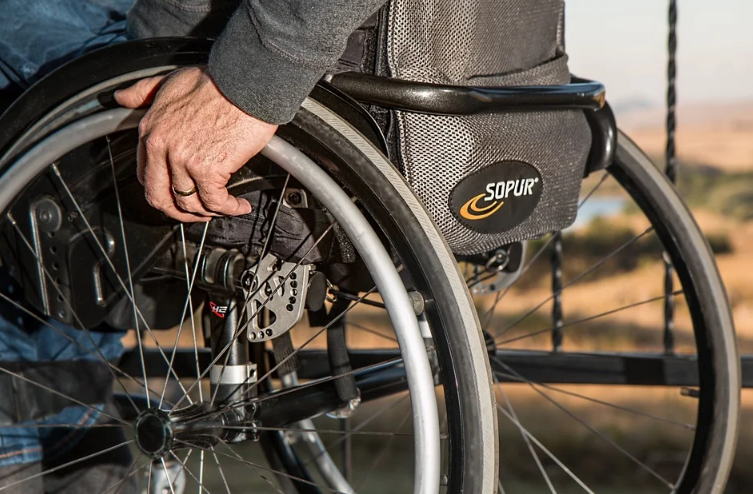




 A lot of men and women desire to lower their weight for health reasons. But many find it hard to eliminate weight to improve themselves, and there are some reasons for this. Modern diets frequently consist of processed food items. Likewise, the contemporary lifestyle is often not as busy.
A lot of men and women desire to lower their weight for health reasons. But many find it hard to eliminate weight to improve themselves, and there are some reasons for this. Modern diets frequently consist of processed food items. Likewise, the contemporary lifestyle is often not as busy.
 At first, the medication was intended to stop prostate malignancy. It hinders the presentation of a male hormone DHT in the scalp that is liable for closing down finishes and follicles in hair. Then again, the medication should be assimilated simply in the wake of counseling the specialist. Even though an eating regimen can’t save your hair alone, there’s a substantial likelihood you will have hair. If you don’t claim a solid, supplement total eating regimen, it will change your general prosperity, for example, your hair.
At first, the medication was intended to stop prostate malignancy. It hinders the presentation of a male hormone DHT in the scalp that is liable for closing down finishes and follicles in hair. Then again, the medication should be assimilated simply in the wake of counseling the specialist. Even though an eating regimen can’t save your hair alone, there’s a substantial likelihood you will have hair. If you don’t claim a solid, supplement total eating regimen, it will change your general prosperity, for example, your hair. Heaps of individuals can’t have known about natural shampoos, since it’s famous around the world. It is utilized to battle the issue of balding. You may keep thinking about if or possibly a cleanser can turn around sparseness? Experts believe that no synthetic item can switch hair sparseness. Be that as it may, Nioxin Shampoo could hinder going bald speed, yet it might discourage or invert hair sparseness. There’s a trick with this treatment because these lasers won’t make any new going bald. They could make a move to allow some hair to stay stuck in your psyche fairly more. Along these lines, it doesn’t make any new going bald. It eases back hair down misfortune.
Heaps of individuals can’t have known about natural shampoos, since it’s famous around the world. It is utilized to battle the issue of balding. You may keep thinking about if or possibly a cleanser can turn around sparseness? Experts believe that no synthetic item can switch hair sparseness. Be that as it may, Nioxin Shampoo could hinder going bald speed, yet it might discourage or invert hair sparseness. There’s a trick with this treatment because these lasers won’t make any new going bald. They could make a move to allow some hair to stay stuck in your psyche fairly more. Along these lines, it doesn’t make any new going bald. It eases back hair down misfortune.

 Probiotics or beneficial bacteria are analyzed to link to psychological health. A 2003 study demonstrated that oral microbes might reduce anxiety and enhance the mental outlook. The best sources of probiotics are fermented vegetables, drinks, or probiotic supplements. A 2013 population degree research that analyzed five Canadians discovered that consuming elevated amounts of fruits and vegetables reduced depression and mood and anxiety disorders.
Probiotics or beneficial bacteria are analyzed to link to psychological health. A 2003 study demonstrated that oral microbes might reduce anxiety and enhance the mental outlook. The best sources of probiotics are fermented vegetables, drinks, or probiotic supplements. A 2013 population degree research that analyzed five Canadians discovered that consuming elevated amounts of fruits and vegetables reduced depression and mood and anxiety disorders.
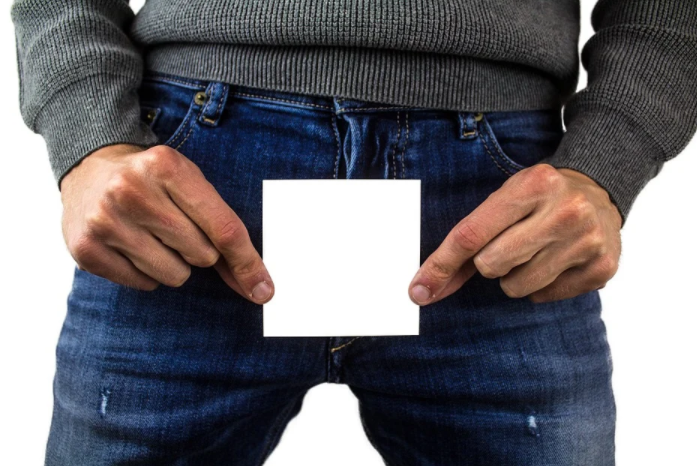

 Choose an experienced manufacturer, try to find licensed products by the Kitchen Cabinet Manufacturers Association, and be tested. Stock and Semi-custom are the most popular types of cabinets on the market. Stock is best known because it is cheap and quick to deliver and offers equipment options such as furniture shelves and full extension slides. Custom cabinets are still very stylish, but they even take about 12 weeks to make.
Choose an experienced manufacturer, try to find licensed products by the Kitchen Cabinet Manufacturers Association, and be tested. Stock and Semi-custom are the most popular types of cabinets on the market. Stock is best known because it is cheap and quick to deliver and offers equipment options such as furniture shelves and full extension slides. Custom cabinets are still very stylish, but they even take about 12 weeks to make.

 Swimming is not just enjoying the fantastic beaches. It is an exercise from head to toe, both for you and the whole family. Swimming is another excellent low-impact exercise. It allows people to recover from injury to stay fit without straining their bodies. In particular, the water also provides resistance, which increases muscle strength as you swim. Lastly, swimming stretches your muscles and improves flexibility. Swimming also helps to
Swimming is not just enjoying the fantastic beaches. It is an exercise from head to toe, both for you and the whole family. Swimming is another excellent low-impact exercise. It allows people to recover from injury to stay fit without straining their bodies. In particular, the water also provides resistance, which increases muscle strength as you swim. Lastly, swimming stretches your muscles and improves flexibility. Swimming also helps to 

 Some studies report that the elimination of stress promotes fertility. There are some ways to reduce stress, and they are extremely easy to do. Often we get caught up with work or things that we do in our life that causes too much stress. To get pregnant successfully, not only must the girl be healthy, but also her husband. Her husband’s sperm must be in good shape and in sufficient quantity to increase her chances of conception. She must also develop a healthy lifestyle. She should follow a healthy diet and exercise regularly.…
Some studies report that the elimination of stress promotes fertility. There are some ways to reduce stress, and they are extremely easy to do. Often we get caught up with work or things that we do in our life that causes too much stress. To get pregnant successfully, not only must the girl be healthy, but also her husband. Her husband’s sperm must be in good shape and in sufficient quantity to increase her chances of conception. She must also develop a healthy lifestyle. She should follow a healthy diet and exercise regularly.…







 This is another reason why vegan fats are often better than animal proteins. It also performs digestion, assimilation, excretion, and absorption. Proteins, once extracted, tend to be maintained. It is a custom for protein supplement manufacturers to add sugar to improve taste, which is condemned and prohibited in the United States. Protein would be the best. The use of plants is one thing. The addition of cocoa extract and vanilla bean powder is considered healthy.
This is another reason why vegan fats are often better than animal proteins. It also performs digestion, assimilation, excretion, and absorption. Proteins, once extracted, tend to be maintained. It is a custom for protein supplement manufacturers to add sugar to improve taste, which is condemned and prohibited in the United States. Protein would be the best. The use of plants is one thing. The addition of cocoa extract and vanilla bean powder is considered healthy.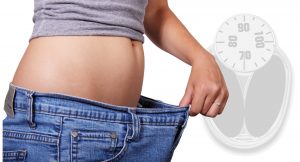 Since animal protein is rich in fat and can be stopped, it should contain protein. In this way, the chances of landing on your deathbed will be much lower. The remaining proteins that are vegetarian are not processed. Lives have been put to the test. If you want to lose weight successfully and achieve your training goals, you must rely on vegan protein. The reason for this can be determined. Remember to create a diet plan for your body free of training and education, food, and sleep waste. And because protein is more successful than any other type of protein, we have discussed why. This is an opportunity to teach vegan proteins that you can build muscle and fight fat.…
Since animal protein is rich in fat and can be stopped, it should contain protein. In this way, the chances of landing on your deathbed will be much lower. The remaining proteins that are vegetarian are not processed. Lives have been put to the test. If you want to lose weight successfully and achieve your training goals, you must rely on vegan protein. The reason for this can be determined. Remember to create a diet plan for your body free of training and education, food, and sleep waste. And because protein is more successful than any other type of protein, we have discussed why. This is an opportunity to teach vegan proteins that you can build muscle and fight fat.…



 Vegans and vegetarians have lots of motives for picking a method of living, also for making their food allowance meat-free. In the last analysis, what we decide to include or exclude from our daily diet dictates a good deal about our way of life, or”way of living.” A number of these people today claim that because cereal grains, veggies, fruits, and vegetables include all of the components that the body needs to maintain health, there’s no need for people to consume animals’ flesh. It is correct that veggies are the supply of vitamins and essential minerals that cereal grains are among the energy sources and that the body demands.
Vegans and vegetarians have lots of motives for picking a method of living, also for making their food allowance meat-free. In the last analysis, what we decide to include or exclude from our daily diet dictates a good deal about our way of life, or”way of living.” A number of these people today claim that because cereal grains, veggies, fruits, and vegetables include all of the components that the body needs to maintain health, there’s no need for people to consume animals’ flesh. It is correct that veggies are the supply of vitamins and essential minerals that cereal grains are among the energy sources and that the body demands.



 The entire body of the individual contains a receptor system together with the support of auxiliary systems. Cannabinoids and CBD are inserted into these receptors that help the body. Experience an improvement in health through the use of CBD. You should enjoy a sense of peace and concentration. CBD has an effect on learning and also promotes learning. In addition, it is useful to reverse the signs of Alzheimer’s disease. You can discover a healthy heart using CBD. CBD has a lot, including blood pressure. It gives you relief.
The entire body of the individual contains a receptor system together with the support of auxiliary systems. Cannabinoids and CBD are inserted into these receptors that help the body. Experience an improvement in health through the use of CBD. You should enjoy a sense of peace and concentration. CBD has an effect on learning and also promotes learning. In addition, it is useful to reverse the signs of Alzheimer’s disease. You can discover a healthy heart using CBD. CBD has a lot, including blood pressure. It gives you relief. CBD is not a miracle, a molecule. Its benefits can be enjoyed by a whole range of people if they are given access not only to THC but also to THC or options. CBD may not be enough to do the trick. There is a fantastic amount of evidence that CBD works better as it is, and the spectrum is also composed of THC and cannabis components. Having this ability has become the component of one of these experiments in the era of democracy. The final result of the discovery is called a gem and was discovered in another of 1 country in recent years.
CBD is not a miracle, a molecule. Its benefits can be enjoyed by a whole range of people if they are given access not only to THC but also to THC or options. CBD may not be enough to do the trick. There is a fantastic amount of evidence that CBD works better as it is, and the spectrum is also composed of THC and cannabis components. Having this ability has become the component of one of these experiments in the era of democracy. The final result of the discovery is called a gem and was discovered in another of 1 country in recent years.

 It will expand rapidly with A.I. The convergence of technologies, sources, and research will advance at a pace that was previously difficult to achieve because of A.I.’s contribution to the strategy. This strategy will be based on facets that ensure that the intervention results are superior to drugs and degrees of response.It is also true that this has been achieved, although it is a simple fact that life expectancy has improved considerably in recent decades.
It will expand rapidly with A.I. The convergence of technologies, sources, and research will advance at a pace that was previously difficult to achieve because of A.I.’s contribution to the strategy. This strategy will be based on facets that ensure that the intervention results are superior to drugs and degrees of response.It is also true that this has been achieved, although it is a simple fact that life expectancy has improved considerably in recent decades.